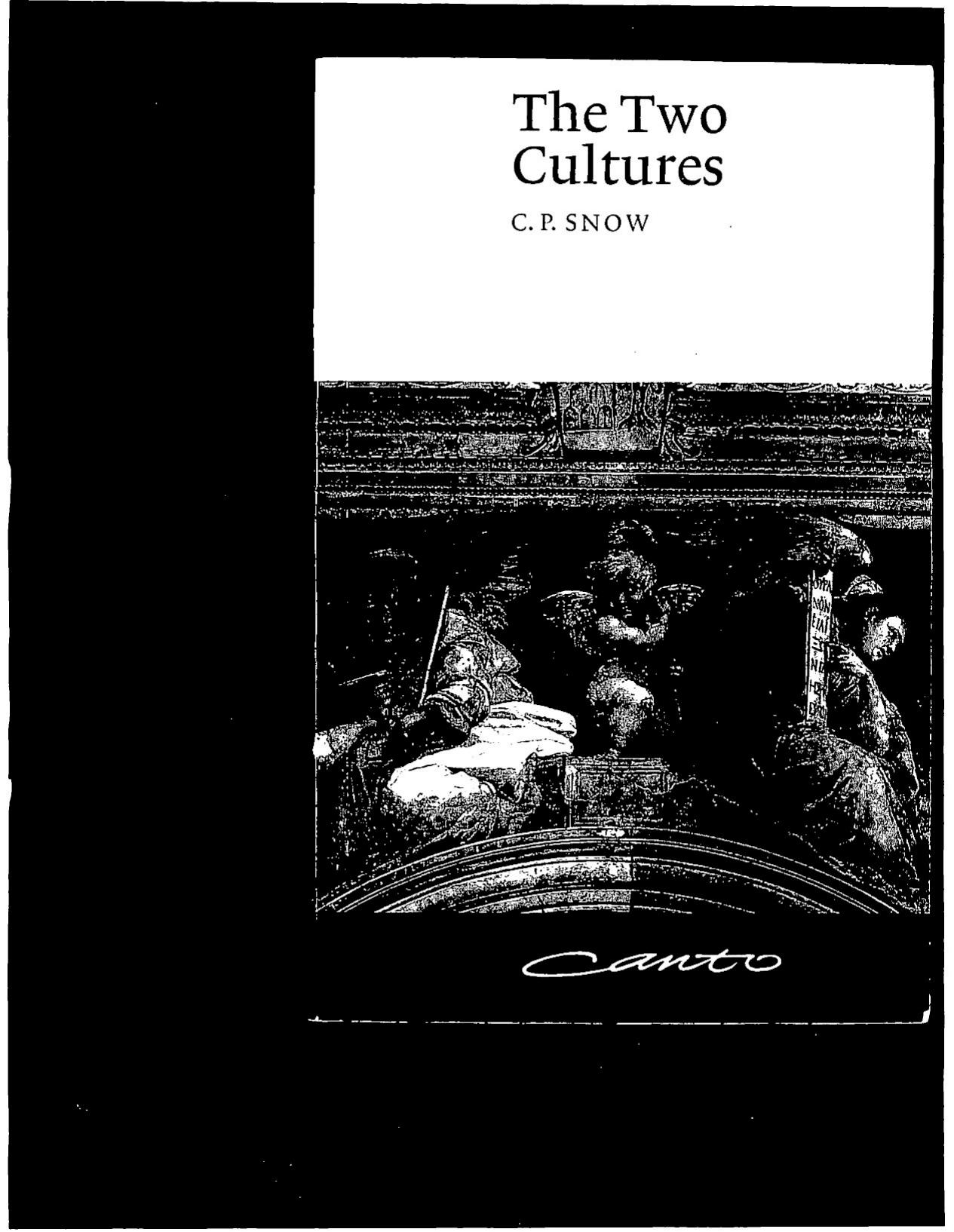The Two Cultures by C. P. Snow

Author:C. P. Snow [SNOW, C.P.]
Language: eng
Format: epub, pdf
ISBN: 051100009x
Publisher: Cambridge University Press
2
INTELLECTUALS AS NATURAL LUDDITES
The reasons for the existence of the two cultures are many, deep, and complex, some rooted in social histories, some in personal histories, and some in the inner dynamic of the different kinds of mental activity themselves. But I want to isolate one which is not so much a reason as a correlative, something which winds in and out of any of these discussions. It can be said simply, and it is this. If we forget the scientific culture, then the rest of western intellectuals have never tried, wanted, or been able to understand the industrial revolution, much less accept it. Intellectuals, in particular literary intellectuals, are natural Luddites.
That is specially true of this country, where the industrial revolution happened to us earlier than elsewhere, during a long spell of absentmindedness. Perhaps that helps explain our present degree of crystallisation. But, with a little qualification, it is also true, and surprisingly true, of the United States.
In both countries, and indeed all over the West, the first wave of the industrial revolution crept on, without anyone noticing what was happening. It was, of course—or at least it was destined to become, under our own eyes, and in our own time—by far the biggest transformation in society since the discovery of agriculture. In fact, those two revolutions, the agricultural and the industrial-scientific, are the only qualitative changes in social living that men have ever known. But the traditional culture didn’t notice: or when it did notice, didn’t like what it saw. Not that the traditional culture wasn’t doing extremely well out of the revolution; the English educational institutions took their slice of the English nineteenth-century wealth, and perversely, it helped crystallise them in the forms we know.
Almost none of the talent, almost none of the imaginative energy, went back into the revolution which was producing the wealth. The traditional culture became more abstracted from it as it became more wealthy, trained its young men for administration, for the Indian Empire, for the purpose of perpetuating the culture itself, but never in any circumstances to equip them to understand the revolution or take part in it. Far-sighted men were beginning to see, before the middle of the nineteenth century, that in order to go on producing wealth, the country needed to train some of its bright minds in science, particularly in applied science. No one listened. The traditional culture didn’t listen at all: and the pure scientists, such as there were, didn’t listen very eagerly. You will find the story, which in spirit continues down to the present day, in Eric Ashby’s Technology and the Academics.12
The academics had nothing to do with the industrial revolution; as Corrie, the old Master of Jesus, said about trains running into Cambridge on Sunday, ‘It is equally displeasing to God and to myself’. So far as there was any thinking in nineteenth-century industry, it was left to cranks and clever workmen. American social historians have told me that much the same was true of the U.
Download
This site does not store any files on its server. We only index and link to content provided by other sites. Please contact the content providers to delete copyright contents if any and email us, we'll remove relevant links or contents immediately.
| Ancient & Classical | Arthurian Romance |
| Beat Generation | Feminist |
| Gothic & Romantic | LGBT |
| Medieval | Modern |
| Modernism | Postmodernism |
| Renaissance | Shakespeare |
| Surrealism | Victorian |
4 3 2 1: A Novel by Paul Auster(11052)
The handmaid's tale by Margaret Atwood(6856)
Giovanni's Room by James Baldwin(5880)
Big Magic: Creative Living Beyond Fear by Elizabeth Gilbert(4723)
Asking the Right Questions: A Guide to Critical Thinking by M. Neil Browne & Stuart M. Keeley(4576)
On Writing A Memoir of the Craft by Stephen King(4215)
Ego Is the Enemy by Ryan Holiday(3991)
Ken Follett - World without end by Ken Follett(3973)
The Body: A Guide for Occupants by Bill Bryson(3802)
Bluets by Maggie Nelson(3711)
Adulting by Kelly Williams Brown(3671)
Guilty Pleasures by Laurell K Hamilton(3587)
Eat That Frog! by Brian Tracy(3514)
White Noise - A Novel by Don DeLillo(3436)
The Poetry of Pablo Neruda by Pablo Neruda(3367)
Alive: The Story of the Andes Survivors by Piers Paul Read(3312)
The Bookshop by Penelope Fitzgerald(3229)
The Book of Joy by Dalai Lama(3218)
Fingerprints of the Gods by Graham Hancock(3214)
